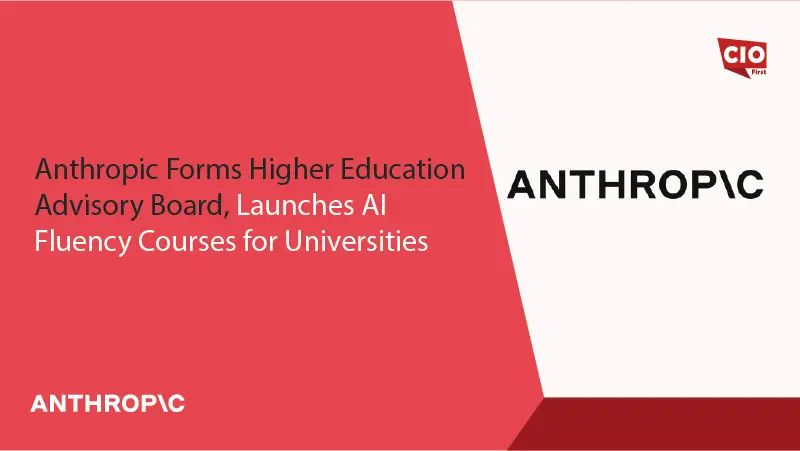Anthropic has unveiled two new initiatives aimed at shaping how artificial intelligence is integrated into higher education: the creation of a Higher Education Advisory Board and the launch of three AI Fluency courses designed for educators and students.
The advisory board will guide the development of Anthropic’s AI assistant Claude for academic settings, ensuring the technology enhances — rather than replaces — critical thinking, teaching, and research. It will be chaired by Rick Levin, former president of Yale University and former CEO of Coursera, who brings decades of leadership in both traditional academia and online learning.
“Anthropic is deeply committed to AI safety and responsibility in its products and every aspect of its business,” Levin said. “With the help of its newly formed advisory board, it is striving to bring these values to higher education. Our role is to advise the company as it develops ethically sound policies and products that will enable learners, teachers, and administrators to benefit from AI’s transformative potential while upholding the highest standards of academic integrity and protecting student privacy.”
Also Read: MANTECH and Oracle Forge Partnership to Advance Secure, AI-Powered Cloud Solutions for Government Agencies
Joining Levin are several prominent academic leaders, including David Leebron, former president of Rice University; James DeVaney of the University of Michigan; Julie Schell of the University of Texas, Austin; Matthew Rascoff of Stanford University; and Yolanda Watson Spiva of Complete College America.
Alongside the advisory board, Anthropic is introducing three AI Fluency courses co-created with educators and available under a Creative Commons license. These courses — AI Fluency for Educators, AI Fluency for Students, and Teaching AI Fluency — provide practical frameworks for integrating AI responsibly into classrooms, helping faculty design lessons, supporting students in developing critical thinking, and preparing institutions for an AI-enhanced academic future.



























